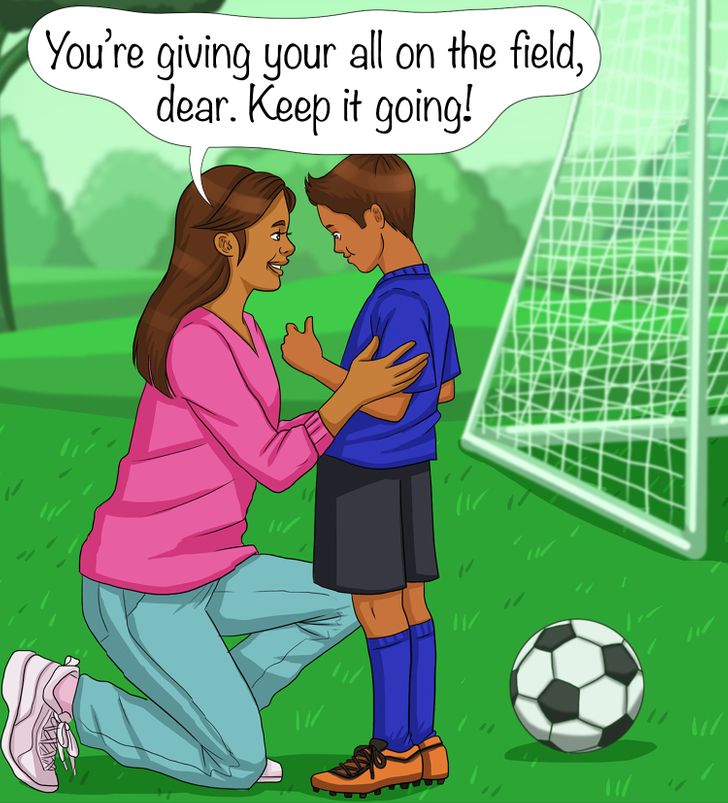Educating children is not always an easy task. It is necessary to understand how motivation works and to use this knowledge as a tool – to know when to learn after doing something for fun or pleasure and to know when to reinforce certain attitudes with rewards that will be useful in the personal development of little ones.
We would like to share a short guide with readers on how motivation works, as well as helpful information on how to distinguish when rewarding children can be helpful.
From An Early Age, Motivation Appears To Help Everyone Achieve Their Goals

It is common to hear that to achieve our goals and dreams it is essential to have enough motivation or to be able to find it. And although motivation is something natural that can arise simply by liking something, according to psychology, this is a process that begins to develop in the first years of life.
It is then that we all have concrete experiences that create and nurture a healthy and balanced system of reason, which is the key when it comes to achieving positive results in what we want. Remember this when you think about motivating your children to do something.
There Are 2 Types Of Motivation That Drive Us To Do Things

Now if you want to better understand why children do or do not do certain things, it can be helpful to distinguish between the 2 different types of motivation. The first type is called intrinsic and appears when something is done simply for fun or pleasure.
For example, when a child plays a video game, he finds it very funny. On the other hand, extrinsic motivation is a type of motivation that arises when something is done to obtain an external reward, hence the name. Something external means, for example, getting a good grade on an exam.
When Something Isn’t Really Motivating In Itself, You Can Always Use Rewards To Encourage A Specific Behavior To Appear

Like adults, children also find the motivation to earn rewards. We refer to that feeling that arises when you receive your paycheck or an extra bonus at the end of the month that can help people want to improve their performance, for example.
In psychology, this is often called positive reinforcement because it encourages the creation and/or increases the frequency with which behavior occurs after receiving a specific type of reward.
And while the use of positive reinforcement has long been underestimated to avoid having to reward people all the time, it is widely accepted as a useful way to motivate people to do tasks that they simply wouldn’t care about at first.
These tasks can be studying specific subjects, such as math or a language, or even cleaning the house.
Keep In Mind That A Compliment Is Also A Type Of Positive Reinforcement

Just as you have different types of motivation, you also have different types of rewards. They can be material, like a game or money, or intangibles, which would be, for example, a compliment that focuses more on the process than just the result.
To do this, you can stop concentrating on scoring a particular test and instead praise the child for the effort they put into studying. Consider doing this sincerely and try not to go too far with a compliment, as children can easily tell if you are lying or not.
According to a child and adolescent psychiatrist, emphasizing positive behavior also helps develop better self-esteem in children. Plus, getting a lot of praise is more likely to make kids cooperate in other situations too, so it seems like good advice to take action, even if you’re not trying to motivate your child to do something specific.
Children Should Have A Say When Choosing The Reward They’re Offered, While Parents Should Be Specific When Giving Instructions

Encourage healthier communication between you and your children by giving them input when choosing the type of reward they would like to receive. This can help keep you motivated and make the reward even more attractive than before.
However, as a parent, you should always express in very clear terms the instructions or behavior you expect to receive, fostering extrinsic motivation.
Try Creating An Organized Incentive System

Through a reward system, you can keep kids motivated when they need to study. However, for this to work, they need to know that there is something special to look forward to when the time for their activities runs out.
For example, imagine that you have created a system of points that they can accumulate after each study session to use for something special. You can make a table to let them know how many points they have accumulated so far.
Try to personalize it according to your child’s age and interests. Also, try to keep an open mind about the rewards it offers.
You may be able to give your child the ability to redeem a certain number of points for benefits such as going to bed later or even a small amount of cash. With younger children, markers can be used instead of dots.
Do you have a working strategy to keep kids and teens motivated? Do you remember what motivated you the most as a child? Share your stories with us.


